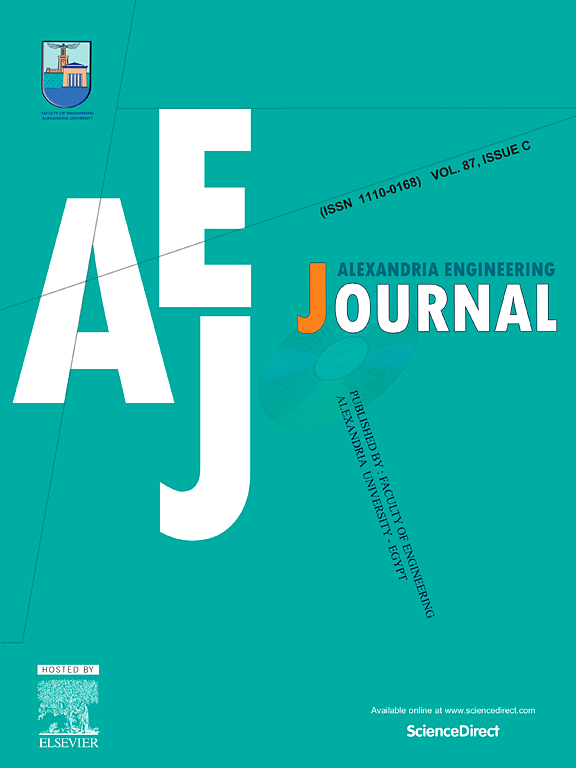用于智能水管理和灾害响应的分散多代理联合和强化学习
IF 6.2
2区 工程技术
Q1 ENGINEERING, MULTIDISCIPLINARY
引用次数: 0
摘要
水资源管理和灾害应对已成为一些最具挑战性的任务,特别是在灾害构成威胁的情况下,因为延迟可能导致更大的影响。用于水动力学和灾难控制的集中式系统通常表现为可伸缩性问题,因为更多的客户端会出现问题,系统的延迟很高,并且系统总是容易出现单点故障。以前的方法缺乏灵活性,不能同步保证多个科目的实时整合,特别是在不可预测的灾害条件下。提出的FL-MAPPO模型通过促进分散的、保护隐私的决策,最大限度地减少延迟和单点故障,超越了当前的方法。相对于LSTM、Bi-LSTM和DRNN等基于集中数据处理的网络,FL-MAPPO具有实时适应性和有效的资源管理能力。实验结果表明,该方法具有较低的MSE、较高的R²分数和较快的响应时间,更适合于洪水预报和灾害响应。为此,本研究提出了一种分散式学习驱动多智能体自治系统(DL-MAAS)的解决方案。新功能是一个分散的合作环境,在这个环境中,智能和自我管理代理利用强化学习(RL)和联邦学习(FL)算法进行学习,以增强智能水管理和实时救灾。采用物联网设备进行感知和数据采集,采用自适应学习进行决策,并通过元启发式算法优化系统中各agent之间的能源使用。实现所提出的解决方案的研究方法涉及多层体系结构的设计,包括数据采集、分散学习和实时执行。该方法的均方误差(MSE)为0.112,R²(R²)为0.953,平均绝对误差(MAE)为0.207,优于现有的大型实时洪水预测方法。数据显示,与传统的集中式系统相比,分散式系统在水分配、灾难响应时间和能源使用方面的效率要高几个数量级。这些结果表明,分散的多主体系统在灾害管理和水资源的可持续性方面具有重要的机会。本文章由计算机程序翻译,如有差异,请以英文原文为准。
Decentralized multi-agent federated and reinforcement learning for smart water management and disaster response
Water resource management and disaster response have become some of the most challenging tasks, especially when disasters pose a threat, as delays could lead to more impacts. The centralized system used for water dynamics and disaster control usually presents itself as a scalability problem since more clients present a problem, the system's latency is high, and the system is always prone to a single-point failure. The previous approach lacks flexibility and does not synchronously guarantee the integration of several subjects in real time, especially during unpredictable disaster conditions. The proposed FL-MAPPO model surpasses current methods by facilitating decentralized, privacy-protecting decision-making minimizing latency and single-point failures. In contrast to LSTM, Bi-LSTM, and DRNN, which are based on centralized data processing, FL-MAPPO provides real-time adaptability and effective resource management. Experimental results validate that it has lower MSE, higher R² scores, and quicker response times, making it better suited for flood prediction and disaster response. To this end, this study advances a solution through a Decentralized Learning-Driven Multi-Agent Autonomous System (DL-MAAS). The new feature is a Decentralized Cooperation environment in which intelligent and self-managing agents learn utilizing Reinforcement Learning (RL) and Federated Learning (FL) algorithms for enhancing smart water management and real-time disaster relief. IoT devices are adopted for sensing and data acquisition, adaptive learning for decision-making, and optimization of energy use among the agents in the system through metaheuristic algorithms. The research methodology for implementing the proposed solution involves the design of a multi-layered architecture, including data acquisition, decentralized learning, and real-time execution. With a Mean Squared Error (MSE) of 0.112, R-squared (R²) of 0.953, and Mean Absolute Error (MAE) of 0.207, the proposed method is better than existing approaches for big, real-time flood predictive systems. Data show that decentralized systems provide orders of magnitude higher efficiency in water distribution, time of response to disasters, and energy usage compared to conventional centralized systems. These results indicate the significant opportunity for decentralized multi-agent systems in the sustainability of disaster management and water resources.
求助全文
通过发布文献求助,成功后即可免费获取论文全文。
去求助
来源期刊

alexandria engineering journal
Engineering-General Engineering
CiteScore
11.20
自引率
4.40%
发文量
1015
审稿时长
43 days
期刊介绍:
Alexandria Engineering Journal is an international journal devoted to publishing high quality papers in the field of engineering and applied science. Alexandria Engineering Journal is cited in the Engineering Information Services (EIS) and the Chemical Abstracts (CA). The papers published in Alexandria Engineering Journal are grouped into five sections, according to the following classification:
• Mechanical, Production, Marine and Textile Engineering
• Electrical Engineering, Computer Science and Nuclear Engineering
• Civil and Architecture Engineering
• Chemical Engineering and Applied Sciences
• Environmental Engineering
 求助内容:
求助内容: 应助结果提醒方式:
应助结果提醒方式:


